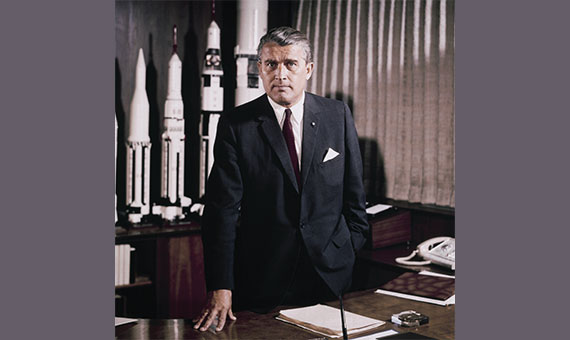Azadi ka Amrit Mahotsav Kolkata event honours four Clergymen
Pope Francis asks businesses to support working women: They’re ‘afraid to get pregnant’
Study: Christianity may lose majority, plurality status in U.S. by 2070
Indian politician declines Magsaysay Award under party pressure
Like John Paul II, Pope Francis heads to Kazakhstan during time of war

“The heavens declare the glory of God; and the firmament sheweth his handywork.” This verse from Psalm 61 is engraved on the gravestone of Wernher von Braun (1912-1977), the renowned and pioneering rocket scientist. It speaks volumes about the reconciliation he achieved between his science and faith.
Von Braun was a German who had worked initially for the Nazis. He was the prominent leader of the rocket development programme of the Nazis. During the Wold War the launching of V-2 rocket was made under his leadership. However, after the Second World War, he secretly escaped to the United States with 1600 other German scientists. Later he had a career with NASA where he helped develop the huge Saturn V rocket as part of the Apollo Mission. He is considered to be the first to propose a mission to Mars.
He was not anything serious a believer or practitioner of religion in his youth. However, in 1945, he stated that his decision to the surrender to the Western Allies in the World War was a decision motivated by his desire to share his scientific knowledge with those who followed the Bible. He had a religious conversion to evangelical Christianity in 1946. An untitled magazine carries the following statement by von Braun: “One day in Fort Bliss, a neighbor called and asked if I would like to go to church with him. I accepted, because I wanted to see if the American Church was just a country club as I’d been led to expect. Instead, I found a small, white frame building … in the hot Texas sun on a brown grass lot … Together, these people make a live, vibrant community. This was the first time I really understood that religion was not a cathedral inherited from the past, or a quick prayer at the last minute. To be effective, a religion has to be backed up by discipline and effort.”
Michael J. Neufeld holds that his conversion was to “pacify his own conscience.” Kendrick Oliver is of the opinion that having “concluded one bad bargain with the Devil, perhaps now he felt a need to have God securely at his side.”
Von Braun made several public declarations on the complementarity of science and religion. He believed in the after life of the soul arguing that nothing in the world can be extinct completely. Not even a single particle can vanish without leaving some traits. Science tells us that there is no extinction but only transformation. If this principle holds for even a particle, this should be utmost true with human soul and its eternity. “Through science man strives to learn more of the mysteries of creation. Through religion he seeks to know the Creator.” In an interview with C.M. Ward, he stated, “The farther we probe into space, the greater my faith.”
Leave a Comment